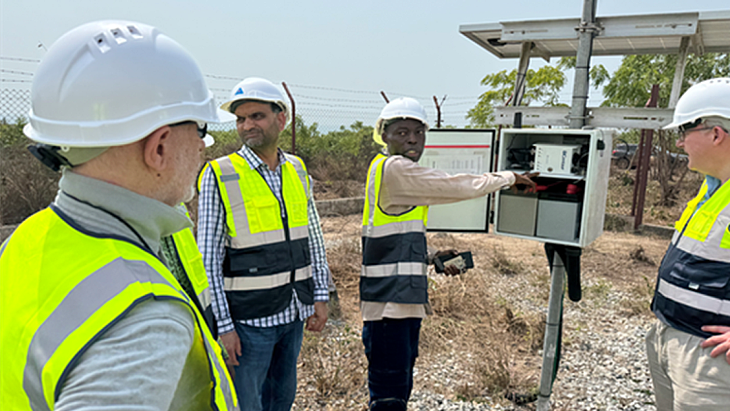The Site and External Events Design Review Service mission last week included four experts from Pakistan, Turkey, the UK and the USA. It was carried out at the request of Ghana's government and hosted by Nuclear Power Ghana. It was the first such mission to the country.
In September 2023, Nuclear Power Ghana announced that it had selected Nsuban in Ghana’s Western Region as its preferred nuclear power plant location, with Obotan in the Central Region as a backup site.
The International Atomic Energy Agency (IAEA) team reviewed the way the site was selected, including the site selection report, criteria used and data collection. They visited the candidate site in the Western Region and the alternative site in the Central Region
Mission team leader, Kazuyuki Nagasawa, senior nuclear safety officer at the IAEA, said: "We confirmed that both the implementing organisation and the management system are well-designed with the support of the government and that the Site Approval Report has been systematically and thoroughly prepared. Ghana followed the IAEA safety standards while performing the site selection process."
The mission team praised the leadership and management of safety and said it had been functioning well during the site selection process. They also issued recommendations "to improve the quality and optimise the site selection process" aiming to minimise the potential for the selected site to be found to be unsuitable during the site characterisation stage, with factors for consideration to "include the susceptibility to earthquakes, flooding and extreme weather events, as well as the feasibility of the emergency plan".
Stephen Yamoah, Executive Director of Nuclear Power Ghana, said: "This mission is of great importance to our nuclear power programme, as it ensures that our decisions are guided by international best practices for safe and secure development of nuclear power infrastructure. The relevance of the mission extends beyond technical assessment, reinforcing our commitment to transparency, regulatory preparedness and sustainable nuclear energy development."
Ghana has been developing plans for both gigawatt-scale nuclear power capacity and small modular reactors. It already uses nuclear and radiation technologies in healthcare, agriculture, research and industry.
The final report will be delivered to Ghana's government within three months, and the IAEA will continue to advise and provide assistance with the site approval process.















